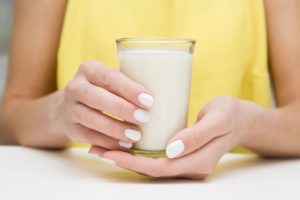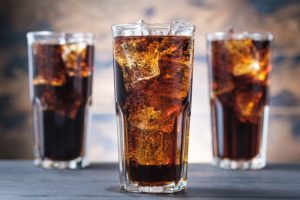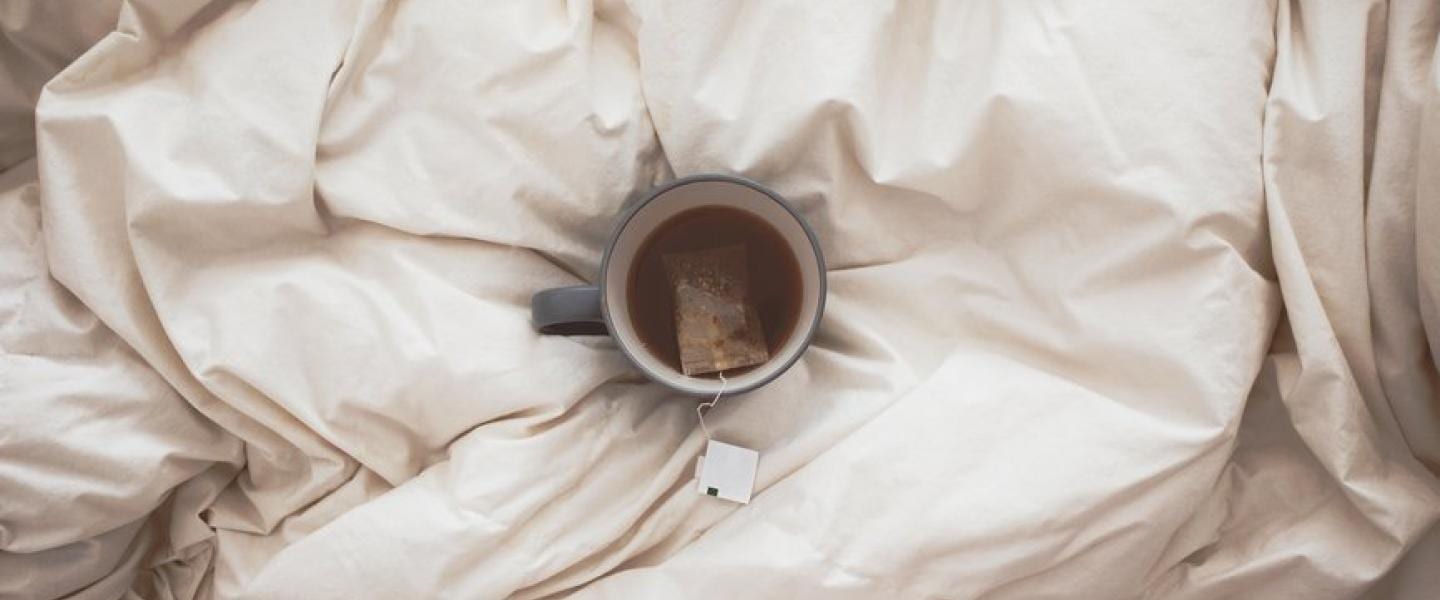How Long Does It Take for Caffeine to Wear Off?
- Caffeine’s effects can last anywhere between 2 and 12 hours after intake.
- Individual sensitivity to caffeine varies and impacts the time it takes to wear off.
- Avoid consuming caffeine at least eight hours before bedtime.
While stimulant effects usually begin within an hour after caffeine consumption, it can take several hours for those effects to wear off. It takes even longer for caffeine to be cleared from the body.
Exactly how long it takes caffeine to wear off varies from person to person. The time required for just half of the total caffeine to be eliminated from the body, known as the half-life, is anywhere from 2 to 12 hours .
Learning about how caffeine affects the body, how much caffeine is safe to consume, and how late is too late to drink caffeine can serve as a first step to making sure that caffeine consumption does not interfere with sleep.
Is Your Troubled Sleep a Health Risk?
A variety of issues can cause problems sleeping. Answer three questions to understand if it’s a concern you should worry about.
How Long Does Caffeine Last?
It takes from 15 to 60 minutes to feel the effects of caffeine. How long caffeine lasts depends on how quickly it is absorbed and processed by the body. The absorption, metabolism, and half-life of caffeine can vary substantially between different people and at different times based on a variety of factors.
Examples of these factors include:
- Genetics
- Sex
- Age
- Body weight
- Being pregnant
- Having certain medical conditions
- Taking oral contraceptives
- Drinking alcohol or smoking cigarettes
- Being at a high altitude
- Eating before consuming caffeine
With so many factors impacting the rate at which caffeine is cleared from the body, it is difficult to say exactly how long caffeine lasts in a person’s system. In most cases, half of the caffeine is cleared in 4 to 6 hours , but in any specific situation the half-life can range from 2 to 12 hours.
Because caffeine can persist in a person’s system, consuming it too late in the day can make it more difficult to sleep well at night. For this reason, many experts recommend avoiding caffeine within eight hours of sleep.
How Caffeine Affects the Brain & Body
After ingestion, caffeine is quickly absorbed through the gastrointestinal system . Caffeine has very high bioavailability, which means that nearly all of the caffeine consumed is taken up by the body. Within an hour after consumption, the liver and kidneys begin to process and eliminate caffeine through the urine.
Although there can be individual variation, the effects of caffeine appear in a number of ways:
- Stimulating the central nervous system , quickening blood flow and breathing
- Triggering the release of certain hormones and neurotransmitters
- Elevating blood sugar
- Increasing the production of urine and stomach acid
- Accelerating digestion
- Increasing blood pressure
As a result of these effects, caffeine can make a person feel more awake, alert, and energized. It can also help a person feel more social and temporarily improve their athletic performance. Caffeine even counteracts the effects of sleep loss, improving thinking, memory, and attention in people with jet lag and shift work disorder.
The effects of caffeine on alertness and sleep are thought to be related to its impact of adenosine . Adenosine is a chemical naturally produced in the body. It accumulates while a person is awake, which steadily increases the pressure to sleep. Caffeine blocks adenosine’s effects in the brain, explaining caffeine’s ability to reduce feelings of tiredness.
Relatedly, caffeine can disrupt the body’s natural sleep-wake cycle, making it harder to fall and stay asleep, lowering sleep quality, and reducing deep sleep. Some research suggests that occasional caffeine users may be more sensitive to the disruptive effects of caffeine on sleep. For regular users, the body can get used to caffeine intake, and they may increase caffeine consumption over time to get the same stimulant effects.

How Much Caffeine Is Safe to Drink?
Around 90% of adults eat or drink products containing caffeine every day, mainly because it can help with waking up in the morning and feeling alert throughout the day. Most adults can safely consume up to 400 milligrams of caffeine each day, which is roughly equivalent to four cups of coffee .
The American Academy of Pediatrics discourages the use of caffeine in children and adolescents because they may be more vulnerable to sleep loss and other potentially harmful effects of caffeine. Despite these recommendations, national surveys have found that more than 75% of children over the age of 5 consume caffeine.
Other individuals should be cautious about their use of caffeine and talk to their doctor about safe levels of consumption. This includes people with:
- Sleep disorders
- Migraines or regular headaches
- Anxiety
- Acid reflux or stomach ulcers
- Cardiovascular disease or heart arrhythmia
- Liver or kidney disease
- Seizures
People who are pregnant or breastfeeding should talk to their doctor about the safety of caffeine use. Although caffeine can cross the placenta to reach the fetus, its effects on fetal health are unknown. Caution with caffeine intake is also recommended for people taking certain medications like antibiotics, asthma drugs, and heart medications.
Caffeine poisoning, also called caffeine toxicity, is an uncommon but dangerous condition that occurs if a person consumes over 1,200 milligrams of caffeine. Most emergency room visits related to caffeine poisoning are from young adults who mixed energy drinks with alcohol or other substances.
How Do I Know What Contains Caffeine?
Caffeine is naturally present in at least 60 plants, including coffee beans, tea leaves, cacao pods used to make chocolate, kola nuts used in soft drinks, and guarana berries used in energy drinks. Caffeine is also produced synthetically and is added to various foods, drinks, pain medications, diet pills, and other products.
Most caffeine consumed in the United States comes from drinks like coffee, tea, soft drinks, and energy drinks. The amount of caffeine contained in coffee depends on the source of the coffee beans and how the coffee is processed and brewed. Even decaffeinated coffee contains a small amount of caffeine.
| Coffee | Serving Size | Approximate Caffeine Content |
|---|---|---|
| Brewed Coffee | 8 ounces | 70-140 milligrams |
| Decaf Coffee | 8 ounces | 3-12 milligrams |
| Espresso | 1 ounce | 40 milligrams |
In tea, the amount of caffeine depends on the type of tea, how long it was steeped, and the serving size. Many teas are produced from the Camellia sinensis plant and naturally contain caffeine. The exception is herbal teas, which are made from other plants and typically do not contain caffeine.
| Tea | Serving Size | Approximate Caffeine Content |
|---|---|---|
| Black, green, or white tea | 8 ounces | 40-120 milligrams |
| Bottled Teas | 12-16 ounces | 10-100 milligrams |
Soft drinks and energy drinks are a common source of caffeine in the U.S., particularly for children and adolescents. While the FDA limits the amount of caffeine contained in certain soft drinks, many energy drinks are sold as dietary supplements and are not required to stay within this limit. Because some energy drinks can contain very high amounts of caffeine, they can be dangerous when mixed with alcohol or other substances.
| Drinks | Serving Size | Approximate Caffeine Content |
|---|---|---|
| Regular or diet soda | 12 ounces | 0-70 milligrams |
| Energy drinks | 8-16 ounces | 50-300 milligrams |
| Hot cocoa | 8 ounces | 3-13 milligrams |
Finally, caffeine is contained in chocolate and added to a variety of foods such as ice creams, snacks, candies, and gum.
| Food | Serving Size | Approximate Caffeine Content |
|---|---|---|
| Coffee-flavored ice cream | 8 ounces | 50-85 milligrams |
| Dark chocolate (55%) | 100 grams | 125 milligrams |
| Milk chocolate (33%) | 100 grams | 45 milligrams |
How Late Should I Drink Caffeine?
Experts typically recommend avoiding caffeine at least eight hours before bedtime. While an afternoon coffee, tea, or energy drink may increase alertness and combat drowsiness, consuming caffeine too late in the day can lead to trouble falling and staying asleep at bedtime.
For people who are more sensitive to the effects of caffeine, eight hours before bedtime may not be enough and it may be necessary to stop caffeine consumption even earlier in the day. Anyone who has sleeping problems or significant daytime sleepiness should talk with their doctor and review their sleep-related habits and everyday diet.

Still have questions? Ask our community!
Join our Sleep Care Community — a trusted hub of sleep health professionals, product specialists, and people just like you. Whether you need expert sleep advice for your insomnia or you’re searching for the perfect mattress, we’ve got you covered. Get personalized guidance from the experts who know sleep best.
References
10 Sources
-
Giardina, E. G. (2021, December 15). Cardiovascular effects of caffeine and caffeinated beverages. In B. J. Gersh (Ed.). UpToDate.
https://www.uptodate.com/contents/cardiovascular-effects-of-caffeine-and-caffeinated-beverages -
U.S. Food and Drug Administration. (2018, December 12). Spilling the beans: How much caffeine is too much?
https://www.fda.gov/consumers/consumer-updates/spilling-beans-how-much-caffeine-too-much -
Murray, A., & Traylor, J. (2022, August 14). Caffeine toxicity. In StatPearls. StatPearls Publishing.
https://www.ncbi.nlm.nih.gov/books/NBK532910/ -
Yew, D. (2022, August 24). Caffeine toxicity. Medscape.
https://emedicine.medscape.com/article/821863-overview -
National Institutes of Health. (2020, October). Tired or wired: Caffeine and your brain.
https://newsinhealth.nih.gov/2020/10/tired-or-wired -
Chawla, J. & Suleman, A. (2018, June 14). Neurologic effects of caffeine. Medscape.
https://emedicine.medscape.com/article/1182710-overview -
Bordeaux, B. & Lieberman, H. R. (2022, June 22). Benefits and risks of caffeine and caffeinated beverages. In D. Seres (Ed.). UpToDate.
https://www.uptodate.com/contents/benefits-and-risks-of-caffeine-and-caffeinated-beverages -
Temple, J. L., Bernard, C., Lipshultz, S. E., Czachor, J. D., Westphal, J. A., & Mestre, M. A. (2017). The safety of ingested caffeine: A comprehensive review. Frontiers in Psychiatry, 8, 80.
https://pubmed.ncbi.nlm.nih.gov/28603504/ -
Temple J. L. (2019). Review: Trends, safety, and recommendations for caffeine use in children and adolescents. Journal of the American Academy of Child and Adolescent Psychiatry, 58(1), 36–45.
https://pubmed.ncbi.nlm.nih.gov/30577937/ -
National Center for Complementary and Integrative Health. (2018, July). Energy drinks.
https://www.nccih.nih.gov/health/energy-drinks























